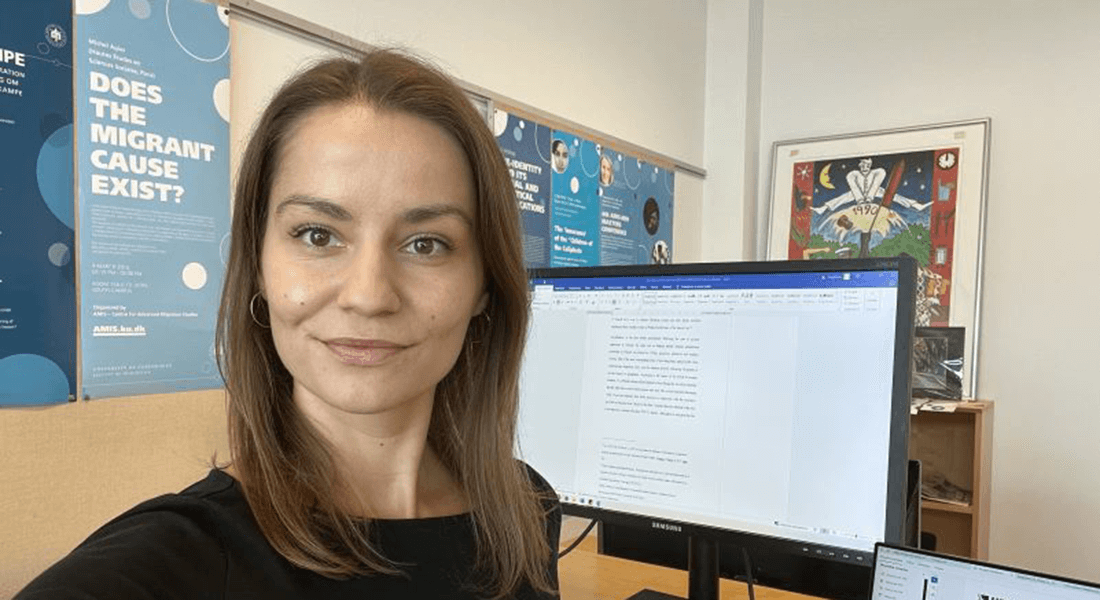Magdalena Bogucewicz: Migrant healthcare in humanitarian contexts
Meet Magdalena Bogucewicz, PhD candidate at Adam Mickiewicz University in Poznań and a Visiting Scholar at the Centre for Advanced Migration Studies, University of Copenhagen. In this spotlight, Magdalena highlights the importance of refugees' and migrants' healthcare in a humanitarian context associated with state obligations.

Tell us about your research
In my ongoing research, I investigate the repercussions of double standards in Polish asylum policy on the operations of humanitarian organizations. The study analyzes the role of asylum policies in either hindering or enabling humanitarian activities within highly politicized contexts. Connecting this research to global health, it's crucial to recognize that refugees and migrants, frequently vulnerable and subject to discrimination, demand proper healthcare, often provided by humanitarian organizations. Safeguarding their well-being transcends a mere human right; it becomes an imperative for host countries, serving as an obligation to protect both these populations and the broader community from potential health risks.
It's crucial to recognize that refugees and migrants, frequently vulnerable and subject to discrimination, demand proper healthcare, often provided by humanitarian organisations.
Why is this research important?
I believe that my research is important because it addresses a complex issue at the intersection of politics, asylum policies, and humanitarian efforts. It has the potential to inform policy changes, contribute to global health discussions, and shape a more equitable and compassionate future for asylum seekers and refugees. This aspiration aligns with the broader goal of creating an environment where the rights and well-being of asylum seekers are consistently prioritized, irrespective of the political landscape.
What excites you about your work and your research?
What really lights up my work is the chance to connect with fellow enthusiasts - motivated and brilliant experts all fired up about unraveling solutions for dignified and secure migration. They're a perpetual source of inspiration. What's even more thrilling is guiding the next generation of students, sharing insights to deepen their grasp of complex international issues, particularly the intricacies of forced migration.
Which achievements do you hope to see within your research field 10 years from now?
I am optimistic that a decade from now, we can draw valuable lessons from the positive governmental and legal approaches facilitating the displacement from Ukraine. This experience can serve as a model for treating other groups of asylum seekers with a similar level of fairness, granting them the right to apply and ensuring they receive international protection if needed. I hope that humanitarian organizations will be able to operate within the scope of more unified legislation and standards, regardless of political contexts.
What advice do you have for junior researchers in global health?
I've always seen being a researcher as a real privilege – the privilege of continuous learning, the privilege of crafting your own projects, and the privilege of engaging with brilliant minds every day. Of course, there are undoubtedly some tough, overwhelming days, but the narrative that keeps me motivated is this: "I don't HAVE to do it, I GET to do it." Shifting that mindset always amps up my positivity and gratitude - perhaps it will do the same for some younger researchers.
What is your favorite source of global health inspiration and knowledge?
I draw inspiration not only from thematic journals and monographs but also from documentaries and reportages, which I subsequently recommend to my students. I believe these visual sources help kindle their interest in the practical applications of the theoretical concepts we delve into in class. Specifically, I highly recommend Sebastião Salgado’s photobook "Exodus," a phenomenal and profoundly moving photographic record of displaced people.
Contact
Magdalena Bogucewicz, magdalena.bogucewicz@amu.edu.pl
PhD candidate, Faculty of Political Science and Journalism, Adam Mickiewicz University in Poznań
Visiting Scholar at Centre for Advanced Migration Studies, University of Copenhagen
